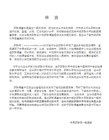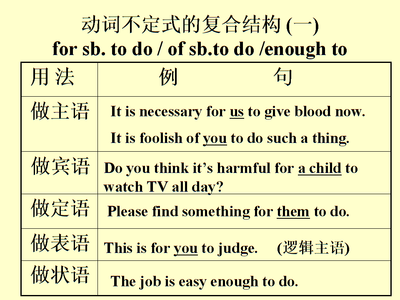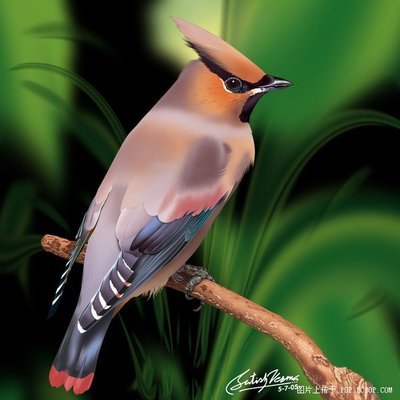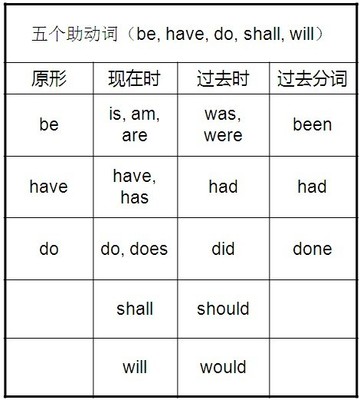一.现在完成时的构成:
现在完成时由助动词have(has)+动词的过去分词构成。has用于第三人称单数,have用于其他各种人称.
二.现在完成时的用法:其用法主要有三种
I.“已完成”用法:表示一个过去发生并结束的动作对现在造成的影响或结果。
这一类情况可以细致分为下述两种情况。
1)表示开始于过去的动作刚刚结束。常和just,now,already,yet,not…yet等不确定的时间状语连用。
Li Ming has just turned off thelight.李明刚刚把灯关上。(说明现在灯关上了)
I've finished my homeworknow.现在我已经做完作业了。(说明可以交作业或做别的了)
2)表示过去动作的结果,现在仍残留着。一般不用时间状语。
I have lost mypen.我把笔丢了。(说明过去某时丢的,现在我还没找到这支笔)
She has become ateacher.她已经当了老师。(说明她现在仍是老师)
II.“未完成”用法。表示动作或状态从过去某时开始,持续到现在,可能继续下去,也可能刚刚结束。常和表示一段时间的状语连用。如today,thisweek(month),lately,recently,these days,in the past few days,duringthe last two weeks,since,since yesterday,since 2 days ago,since1991,for a long time,for a month,so far,up to now,till(until)now等。
He has lived here for 30years.他住在这儿三十年了。(现在还住在这儿)
They've known each other sincechildhood.他们从小彼此相识。(现在还在往来)
How long have you studiedEnglish?你学英语多久了?(现在仍在学)
III.经验性用法:表示从过去开始到目前为止这段时间中反复发生的动作或多次出现的状态。
常与频度副词如often,always,every week,twice等连用。
I have been to the Summer Palacetwice.我曾经去过颐和园两次。
He has always said so.他总是这么说.
三.现在完成时的时间状语
I现在完成时属于现在时范围,故不能和过去的时间状语连用。如:yesterday,lastSunday,in1990,three yearsago等。但是,在强调动作产生的后果和影响时,可以和一些表示不确定的时间状语连用。
a.用副词already和yet。already一般用于肯定句中,yet一般用于否定句和疑问句中。
如:We have already finished ourhomework.我们已完成作业了。
They haven't finished their homework yet.他们还没有完成作业。
b.用ever和never.多用于否定或疑问句中,表示“曾经”或“从未“等。
如:-Have you ever been to the GreatWall?你曾经去过长城吗?
-I have never been to the GreatWall.我从未去过长城。
c.用表示到说话为止的过去时间状语,如just, before, up to now, the past few years等。
例如:I have seen her before,but I can not rememberwhere.我以前见过她,但记不起在哪里见过。
He has been there three times the last fewdays.近几天他去过那里三次了。
d.用包括“现在”在内的时间状语,如now,today,this morning(month,year,term)等。例如:-Haveyou met him today?-No,Ihaven't.今天你见过他吗?我没有。
How many times have you been there thisyear?今年你去过那里多少次?
II短暂性动词不能和表一段时间的时间状语连用。如:come,go, arrive, reach, hear, close, leave, begin, start, lose, buy,fall, join, die, get up等。但如果要保留表一段时间的时间状语,必须将动词改为延续性动词。
现归纳总结一下由非延续性动词到延续性动词的转换
如: fall asleep (ill) →be asleep(ill)
get to know→ knowbegin,(start)→beon
open →be openbuy→have
get up→ be updie→bedead
go out→ be outcome→ bein
close→be closedarrive→behere
join→be in, be a +名词finish( end )→beover
leave, move →beaway,borrow→keep
go to school→be astudentcatch(a cold)→ have(acold)
begin tostudy→studycome back→beback
put on→wear 或be on
如:He has been a soldier for threeyears.他参军三年了。
His father has been dead for twoyears.他父亲去世二年了。
The film has been on for 5minutes.电影已开始五分钟了。
We have studied English for three years.我们(开始)学英语已三年了。
四.几点注意事项
I. have been(to)与have gone(to)的区别:
have been(to)表示“去过某地(现在已经回来了)”,可用于各人称;
have gone(to)表示“去某地了(说话时某人不在当地)”,常用于第三人称,
前者可与once ,never,several times等连用,后者则不能。
如:They have been to Beijingtwice.他们去过北京两次。
He has gone to Beijing . 他去北京了。
II.不可延续性动词现在完成时的否定式,已变成一种可以延续的状态,因此可以和表示一段时间的状语连用。
如:I haven't left here since1997.自从1997年以来,我一直没有离开过这儿。
(错)I have received his letter for a month.
(对)I haven't received his letter for almost amonth.
练习
一.用since和for填空
1.______twoyears2.____two years ago
3.___lastmonth4.______ 1999
5._______yesterday6._______ 4 o’clock
7 4hours8._____an hour ago
9.___we werechildren10._____lunch time
11.____ she left here
12. He has lived in Nanjing ___ the year before last.
13. I’ve known him ______ we were children.
14. Our teacher has studied Japanese ______ three years.
15. She has been away from the city ______ about ten years.
16. It’s about ten years __________ she left the city.
二.单项选择。
1、Both his parents look sad . Maybe they______what's happened to him .
A.knewB. haveknownC. mustknowD.will know
2、He has _______ been to Shanghai , has he ?
A. alreadyB.neverC.everD.still
3、Have you met Mr Li ______?
A. yesterdayB. agoC.beforeD.a moment ago
4、The famous writer _____ one new book in the past two years.
A. iswriting B.waswritingC.wroteD.has written
5、—Our country ______ a lot so far .
—Yes . I hope it will beeven ______ .
A.has changed ; well B.changed ; good C.haschanged ; better D.changed ; better
6、Zhao Lan ______already ______in this schoolfor two years .
A. was ;studyingB. will ; study C. has ;studiedD. are ; studying
7、We ______ Xiao Li since she was a littlegirl .
A.knowB. hadknownC. haveknownD. knew
8、Harry Potter is a very nice film .I______ it twice .
A.will seeB.have seenC.sawD.see
9、—These farmers have been to the United States .
—Really ? When_____ there ?
A. will theygo B. didthey go C. do they go D. havethey gone
10、—______ you ___ your homework yet ?
—Yes . I _____ it a momentago .
A.Did ; do ; finishedB.Have ; done ; finished
C.Have ; done ; havefinished D.will ; do ;finish
11、His father ______ the Party since 1978 .
A.joined B. hasjoinedC. wasinD. has been in
12、—Do you know him well ?
— Sure .We _________ friends since ten yearsago .
A.were B. havebeenC. have becomeD.have made
13、—How long have you ____here ?
—About two months .
A. been B.goneC.comeD. arrived
14、Hurry up! The play __________ for ten minutes .
A. hasbegunB. had begun C. has beenon D.began
15、It _____ ten years since he left the army .
A.isB.hasC.willD. was
16、 Miss Green isn't in the office .She_______ to the library.
A.hasgoneB.wentC.willgoD. has been
17、My parents ______ Shandong for ten years.
A. have been in B. havebeen to C. have gonetoD. have been
18. The students have cleaned theclassroom,?
A. sotheyB. don’ttheyC. havetheyD. haven’t they
19、has Mr White been a member of Greener China sinceheto China?
A. How soon, comes B. How often, got C. Howlong, came D. How far, arrived
20.When he arrived at the bus stop, the bus _____ for 20minutes.
A. hasleft B. hadleft C. has beenawayD. had been away
21.The factory ____ since the February of1988.
A . has been open B. hasopened C. was open D.opened
22.Mary and Rose ____friends since they met in 2000.
A. have madeB. have beenC.made D. havebecome
23.You mustn't_____ until he comesback.
A. be away B.leave C. be left
24.The meeting _____ for a week .
A. has finished B. hasended C. has been over
25.Miss Gao ______ this school for nearly 5years.
A. has been in B. has cometo C. has taught
26.Ben ______ a teacher for 4 years .
A. has been B. has become C.was D.became
27. I ______ home for aweek.
A. have returned B. havebeen back C. returned
三.用never, ever, already, just, yet, for, since填空
1. I have _______ seen him before, so I have no idea abouthim.
2. Jack has _________ finished his homework.
3. Mr. Wang has taught in this school ________ ten years.
4. “Have you ________ seen the film?” “No, I have ________ seenit.”
5. “Has the bus left _______?” “Yes, it has _________ left.”
四.用适当的时态填空:
1.She’s _____________ (live) here ever since she was ten.
2.Both of them ________________ (be) in Hongkong for tendays.
3.Both of them ____________ (come) to Hongkong ten days ago.
4. Half an hour __________ (pass) since the train __________(leave).
5. Mary________(lose) her pen. ________ you _______(see) it hereand there?
6. _________ you _____ (find) your watch yet?
7. ---Are you thirsty? ---No I _________just _________ (have)some orange.
8. Wealready_________ (return) the book.
9. ________ they _______ (build) a new school in thevillage?
10. I _____________(not finish) my homework . Can you helpme?
11. My father _____ (read) the novel twice.
12. I _________ (buy) a book just now.
13. I _________ (lost ) my watch yesterday.
14. My father ___________ (read) this book since yesterday.
五、划线提问
1) I have been there for two days.
__________ _________ __________ you __________ __________ ?
2) My father has lived here since 2000.
_________ _________ __________ your father ___________________?
3) He left here yesterday.
_________ ________ he _________ __________?
4) They bought a book two hours ago.
__________ ___________ they __________ a book
六.翻译下列句子:
1.你曾经吃过鱼和薯条吗?
2.我刚刚丢了我的化学书。
3.我以前从来没去过那个农场。
4.他已经吃过午饭.
5.你已经看过这部电影了吗?
6.我哥哥还没回来。
7.这本字典我已买了三年了。
8.他离开中国三年了。
9.我认识他们五年了。
现在完成进行时
1 定义:现在完成进行时表示动作从过去某一时间开始,一直延续到现在,可能还要继续下去。
2现在完成进行时的构成:现在完成进行时是由“have/has+been+动词的现在分词”构成
3 现在完成进行时的基本句型
肯定式I/We have been working.
疑问式Have you been working?
简略回答 Yes,I/wehave. No,I/wehaven't.
肯定式He/She/It has been working.
疑问式Has he/she/it been working?
简略回答 Yes,he/she/ithas.No,he/she/it hasn't.
4 现在完成时的用法
1)在强调指出动作还未结束,还要继续下去。如:I've been reading this book fortwo hours,but I haven't finished it. 这本书我已读了两个小时了,但我还没读完。
I've read this book.我已读完这本书了。
2)强调动作延续时间的长久或带感情色彩。
She has always been working like that.她一贯是这样工作的。
3)现在完成进行时也可表示现在以前这段时间反复发生的事情。
We've been seeing quite a lot of each otherrecently.最近我们经常见面。
5 现在完成时和现在完成进行时的区别
1)现在完成进行时更强调动作的延续性,它是现在完成时的强调形式。试比较:
We've been living here for ten years.
We've lived here for ten years.我们在这儿已经住了十年了。
2)在不用时间状语的情况下,现在完成进行时表示动作仍在进行。而现在完成时则表示动作在过去已结束。如:
The students have been preparing for theexam.(还在进行)学生们一直在准备考试。
The students have prepared for the exam.(已经结束)学生们为考试作了准备。
3)有些表示状态,感情,感觉的动词如:have,exist,like,hate,hear,know,sound等动词不能用于现在完成进行时,但可用于现在完成时。如:
They've known each other since 1970.自从1970年起他们就相互认识了。
练习:
1.Mr Liswimmingfor 3 hours, and his sonanhour ago.
A.has been,startedB.have started, has started
C.started,startedD. Has started, has started
2.---How longyoustamps?
---Since two years ago.
A.have, collect B.have, beencollecting C.did,collectD.are, collecting
3.She had a headache because shetoolong. She ought to shop.
A.has beenreading B.hadread C.isreading D.read
4.The boyTVall the morning.
A.has watched B.hadwatchedC.has beenwatchingD.watched
5.---have you been learning toswim? ---Halfa year.
A.How longB. How often C.HowfarD.When
6.Our teacher has been teaching in this school for.
A.two year and ahalfB.two and a half year
C.two years andhalfD.two and a half years
7.Heitfor two hours, and he's still watching now.
A.has beenwatchedB.watchingC.has been watching D.iswatching
现在完成时态练习题答案
一.翻译下列句子:
1. Have you ever had / eaten fish and chips?
2. I have just lost my chemistry book.
3. I have never been to the farm before.
4. He has already had lunch= He has had lunch already.
5. Have you seen the movie yet?
6. My brother hasn’t come /get / been back yet= My brother hasn’t returnedyet.
7. I have had this dictionary for three years / since threeyears ago.
8. Has been away from China for three years.
9.I have known them for five years.
10. They have been in the USA for five years.
11. He has been here since he moved to Jining.
12. My sister has been a college student for three years = Mysister has been in college forthree years.
13. They have known each other since 1999.
14. I have been in this school for over three years.
二、用since或者for填空
1. for 2.since3.since4.since5. since
6. since 7.for8since9.since10. since
11. since12.since 13.since14.for15.for16. since
四、划线提问
1. How long have, been there 2. How long has, lived here
3. When did , leavehere4. When did , buy
五、用have(has) been 或have(has) gone 填空。
A: Where has LiFeigone?
B: He has gone to Hainan Island.
A: How long has he been there?
B: He has been there for three days.
A: When will he come back, do you know?
B: I’m afraid he won’t come back recently.
A: Could you tell me the way to Hainan Island?
B: Sorry, I have never been there.
A: How many times has Li Fei been to thatplace?
B: He has been there only once.
六、用have / has been to / in, have gone to及go的各种形式填空。
1. has goneto2. went to
3. has beenin4. have , been in
5. have beenin6. Have , been to ; have been
7. have been in /at8. has gone to
9. did go ;went10. go ; have been
11. are , going ; amgoing12. goes
13. Did ,go14. Do , go
七、综合练习:
1. never 2. just ,already 3.for 4. ever,never 5. yet , just /already
八. 用适当的时态填空:
1. lived / has beenliving2. have been
3.went4. has passed ; left
5. has lost ; have ,seen6. Have ,found
7. have ,had8. have , returned
9. Have ,built10. haven’t finished
11. hasread12.bought13. lost
14. have been reading / has read
 爱华网
爱华网



